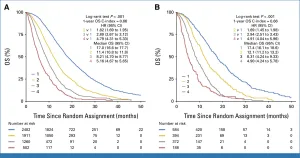Understanding Inflammatory Bowel Disease: A Global Perspective
Inflammatory bowel disease (IBD), encompassing conditions like Crohn’s disease and ulcerative colitis, has often been viewed as a modern ailment primarily affecting industrialized nations. However, recent research and observations suggest a more complex global picture.
Is IBD Truly a Modern Disease?
For years, the prevalence of IBD in developed countries led to the assumption that it was a consequence of modern lifestyles, diets, or environmental factors specific to these regions. Factors often cited include:
- Highly processed foods
- Sedentary lifestyles
- Increased antibiotic use
- Higher levels of hygiene leading to altered gut microbiota
A Shifting Global Landscape
While these factors undoubtedly play a role, emerging data indicates that IBD is becoming increasingly recognized in developing countries as well. This could be due to several reasons:
- Improved Diagnostics: Better healthcare infrastructure and diagnostic capabilities in developing nations are leading to more accurate diagnoses of IBD.
- Dietary Changes: As developing countries adopt more Westernized diets, they may be experiencing a rise in IBD cases.
- Environmental Factors: Industrialization and urbanization in these regions could be contributing to environmental changes that impact gut health.
The Role of Genetics
Genetic predisposition also plays a significant role in IBD. Studies have identified certain genes that increase the risk of developing these conditions. While genetics don’t fully explain the global distribution of IBD, they do contribute to an individual’s susceptibility.
Managing IBD: A Holistic Approach
Regardless of where a person lives, managing IBD typically involves a multi-faceted approach:
- Medications: Anti-inflammatory drugs, immunosuppressants, and biologics are commonly used to reduce inflammation and manage symptoms.
- Dietary Modifications: Working with a registered dietitian to identify trigger foods and develop a personalized meal plan can be beneficial.
- Lifestyle Changes: Stress management techniques, regular exercise, and adequate sleep can also help improve symptoms.
- Surgery: In some cases, surgery may be necessary to remove damaged portions of the intestine.
Final Thoughts: A Growing Global Concern
While IBD may have once been considered a modern disease of industrialized nations, it’s clear that it’s becoming a global health concern. Increased awareness, improved diagnostics, and further research are crucial for understanding and effectively managing IBD worldwide. By addressing dietary factors, lifestyle choices, and environmental influences, we can work towards better outcomes for individuals living with IBD globally.




+ There are no comments
Add yours